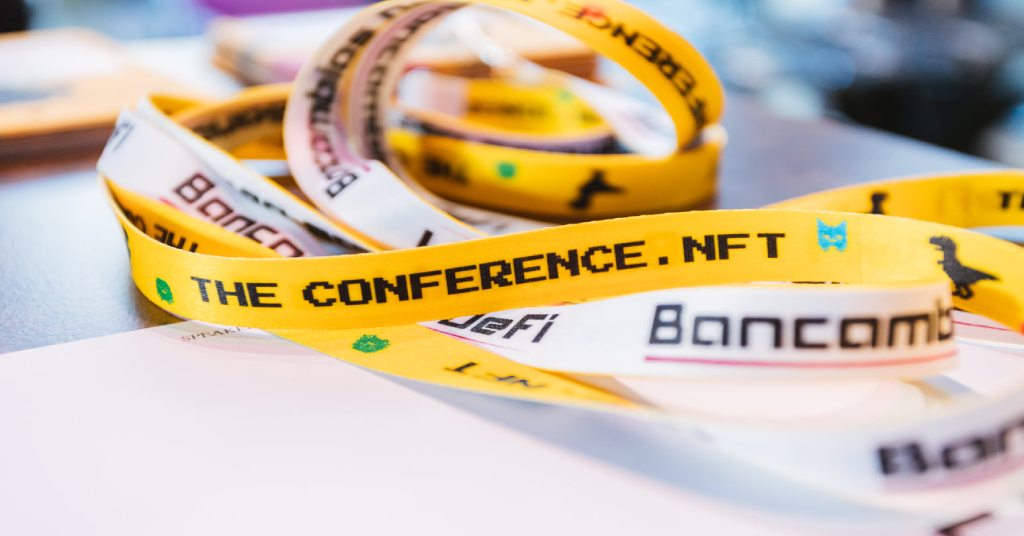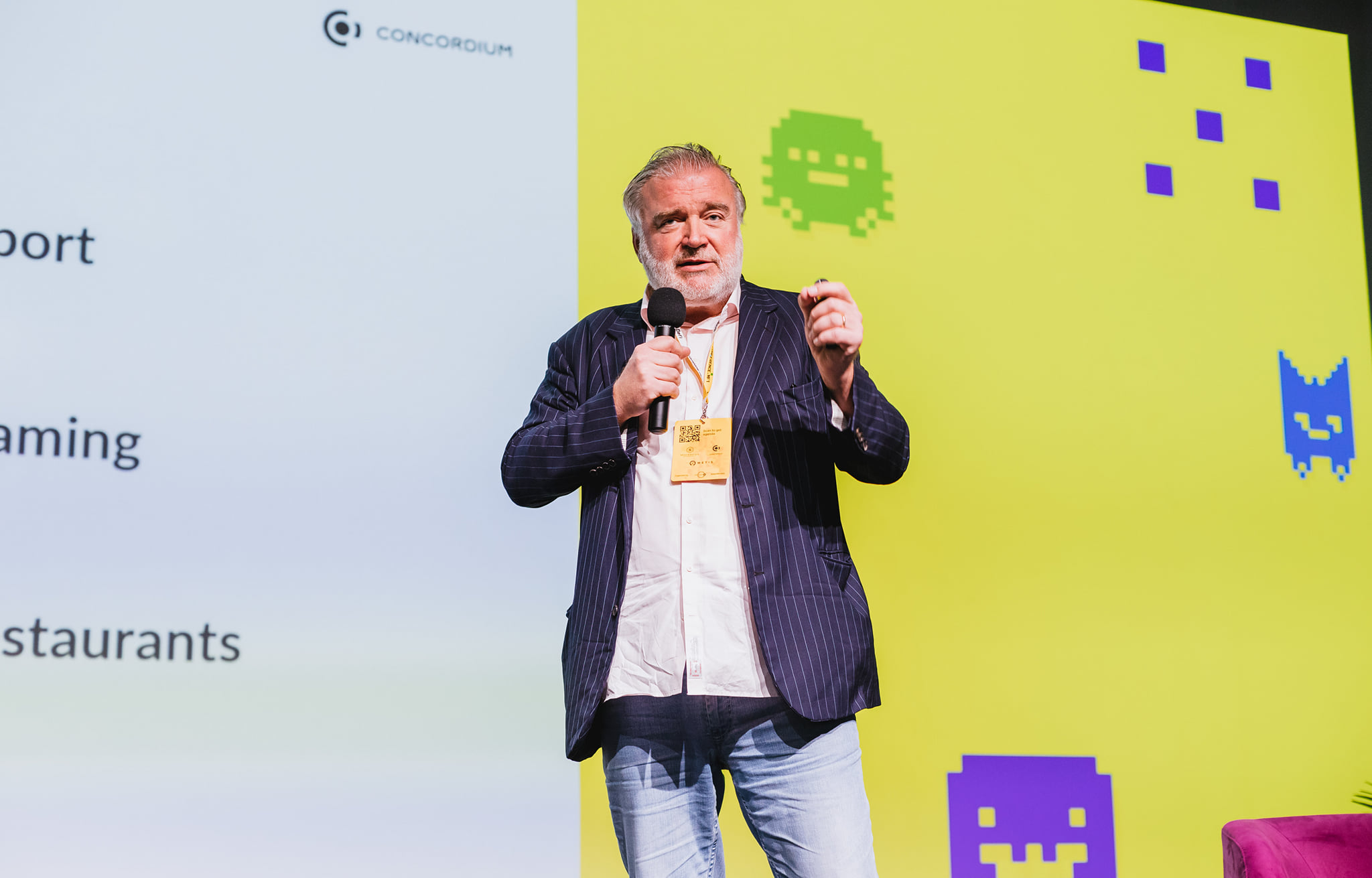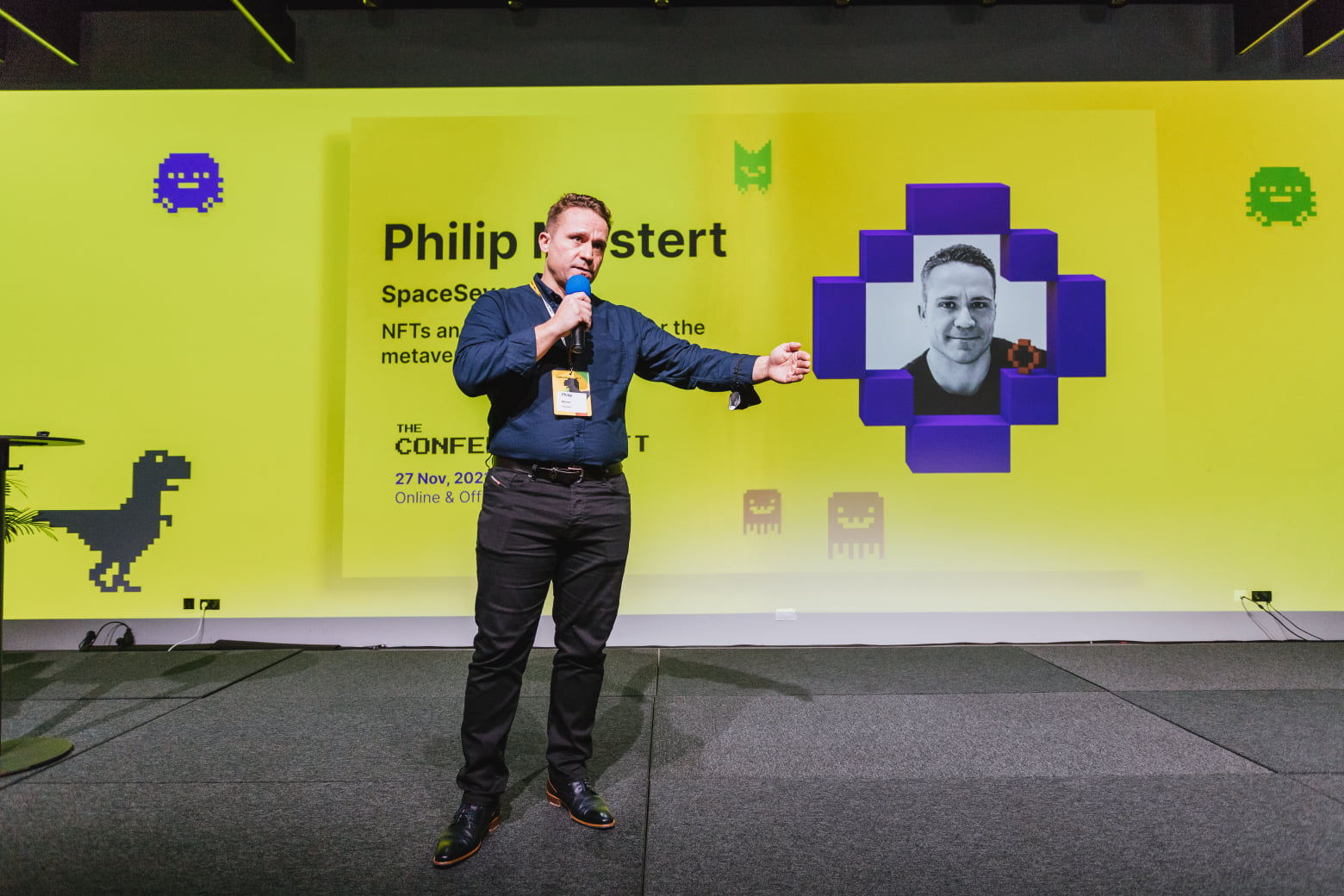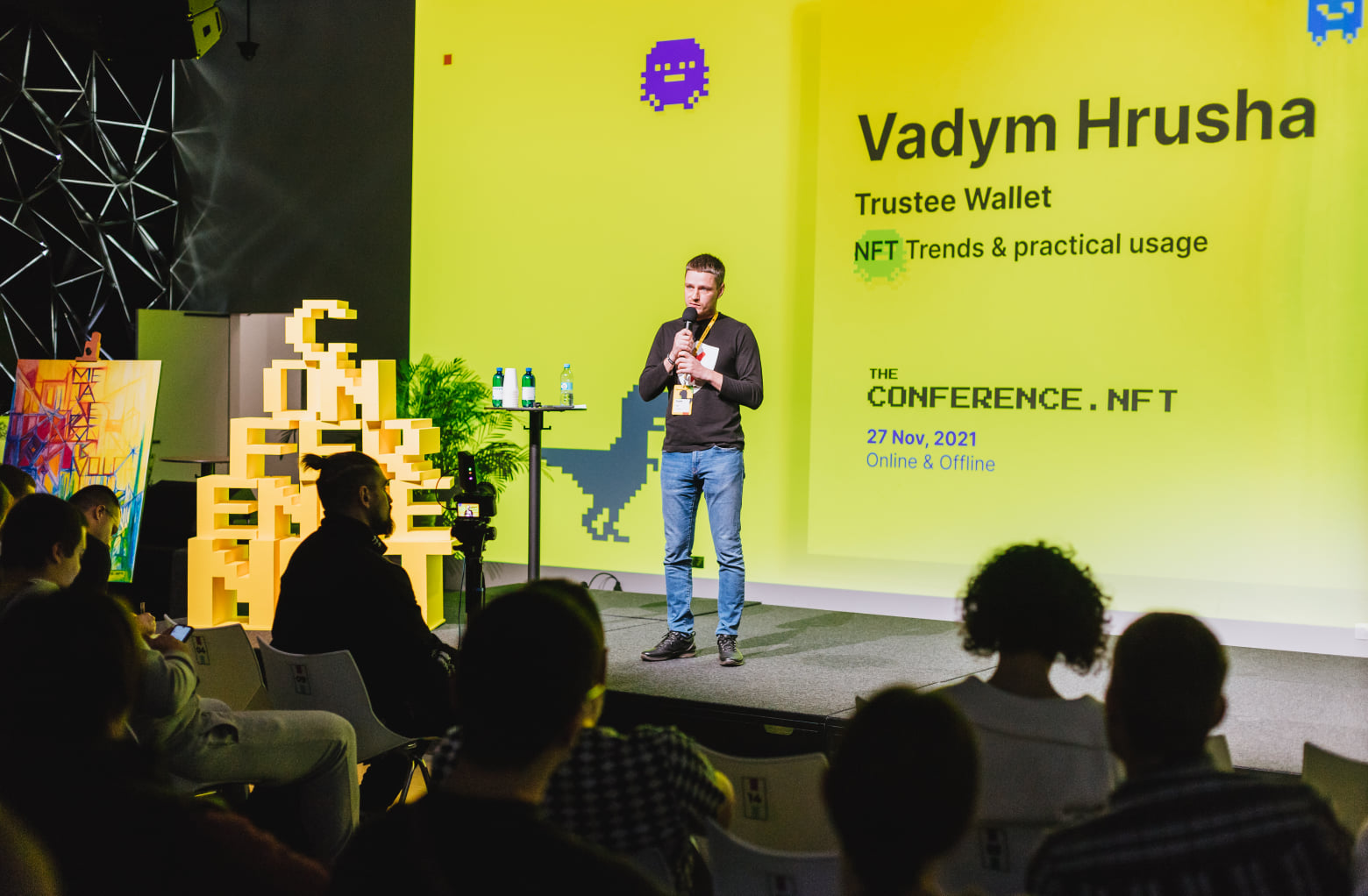It was the first Ukrainian conference fully dedicated to NFT

Source: AroundB
PaySpace Magazine served as a media partner for The Conference.NFT Kyiv – the first Ukrainian conference dedicated to NFTs.
The event was held at PMHub in a hybrid format, thus gathering more than 500 guests offline and almost two thousand online.
There were not only representatives of the Ukrainian industry, but also Polish, Swiss, German, and others. It led to a better understanding of different views on the NFT market, its future, and the current state in different parts of the world.
Among the speakers were the leaders of the modern digital and NFT world.
Lars Seier Christensen (Chairman of the Board, Concordium Foundation)

Source: AroundB
- The key intention of NFT, of course, is to be sure that you know the number of items that are out there, which you couldn’t do before with baseball cards and football player cards and stuff like that, to establish clear ownership of that particular item, make it tradable, be able to show what has been before which is very important in art, for example.
- Regarding this new word that we’re all talking about now – ‘meta’ and ‘metaverse’. If you want to lay claim to anything and own something and have an identity in a Metaverse, NFT is a very easy way to distribute it. That’s a big change to Facebook’s strategy if they want to allow us to own our own identity. So far, as you know well, Google, Facebook, social media, basically, take your identity, and they make all the money. But if they’re really honest about this, and they want to allow us to carry our identity into the metaverse, that’s very interesting.
- So, how do you create a really credible link between a physical asset and a digital twin if you want the actual NFT? I think that NFTs are very much better suited to true data for representations of tickets, art, music, but of course, there are solutions that must be very secure, so that the link between a physical work and an NFT can actually exist.
- What I think is much more worrying here is the lack of ID on all of the original generations of blockchain. And a lot of fake art is already circulating out there and OMC and many other platforms where people actually buy something that they genuinely believe is from their favorite artist or from their favorite sports star, whatever.
Philip Mostert (CMO, SpaceSeven)

Source: AroundB
- There’s a lot of debate currently happening now about what the metaverse is. People say it’s a virtual reality, an interoperable ecosystem of multi chain, multi opportunity. For me, the most important part or attribute is decentralisation of wealth and ownership.
- The metaverse is not going to be governed by physics. It’s going to be anything that our imaginations and creativity can push us into.
- Everything within the metaverse will need to be minted. Basically ‘to mint’ means to take a digital asset and imprint it on the blockchain. When you’ve minted an NFT, it becomes available in an ecosystem depending on the chain that you’re developing on. Once you have minted and have gone through the process of KYC, and taken the ID into ownership, that is immutable, it’s forever going to exist on the blockchain.
- Infinite royalties is something that’s going to be exciting for creators. Imagine being able to live in this world where you passively constantly earn income for your work that you have created.
- Decentralised governance gives us all the potential of owning our souls, our identity, the real estate, our individualisation and determining our own success.
- Everything from an NFT can be commoditised. You can sell, you can buy, you can trade, or offer it as a third party service.
Vadym Hrusha (CEO & Co-founder at Trustee Wallet)

Source: AroundB
- NFT is not an art or digital object. In fact, NFT is a token, a non-fungible token, which has some unique features and cannot be replicated.
- In fact, it is a digital document that certifies your relation to any digital art. This is a document in the digital register.
- It is not just about decentralisation. This ecosystem is self-sufficient, it doesn’t have traditional means of securing intellectual property, value, and transactions.
- NFT is a product that runs on crypto infrastructure. If there was no sovereignty of cryptocurrencies, NFT wouldn’t become trendy and wouldn’t be interesting to anyone.
- You do not need to hire a lawyer to register your digital art. This is an extraordinary strength, freedom, and simplicity of the NFT.
SEE ALSO:









